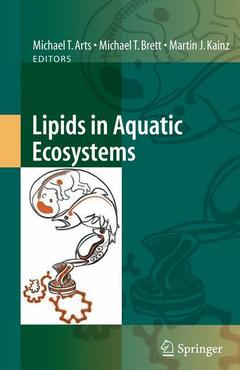Description
Lipids in Aquatic Ecosystems, 2009
Coordinators: Arts Michael T., Brett Michael T., Kainz Martin
Language: English
Subjects for Lipids in Aquatic Ecosystems:
Publication date: 04-2012
377 p. · 15.5x23.5 cm · Paperback
Approximative price 158.24 €
Subject to availability at the publisher.
Add to cartPublication date: 05-2009
Support: Print on demand
Description
/li>Contents
/li>Biography
/li>Comment
/li>
Evidence now suggests that the roles of essential fatty acids as growth promoters and as indices of health and nutrition are fundamentally similar in freshwater and marine ecosystems. Lipids in Aquatic Ecosystems integrates this divergent literature into a coordinated, digestible form.
Chapters are organized so as to discuss and synthesize the flow of lipids from lower to higher trophic levels, up to and including humans. Linkages between the production, distribution and pathways of these essential compounds within the various levels of the aquatic food webs, and their ultimate uptake by humans and other terrestrial organisms, are highlighted throughout the book. This book will be of interest to researchers and resource managers working with aquatic ecosystems.
Michael T. Arts is a research scientist with Environment Canada at the National Water Research Institute in Burlington, Ontario, Canada.
Michael T. Brett is a professor in the Department of Civil and Environmental Engineering at the University of Washington in Seattle.
Martin J. Kainz is a research scientist at the WasserCluster - Biologische Station Lunz; an inter-university center dedicated to freshwater sciences research and education, in Lunz am See, Austria.
A unique and comprehensive study of the role of lipids in marine and freshwater aquatic environments
Serves a growing interest in lipid research
Of interest to nutritionists, aquaculturalists, environmental chemists, and toxicologists as well as academics and resource managers
These books may interest you

Lipids in Freshwater Ecosystems 158.24 €



